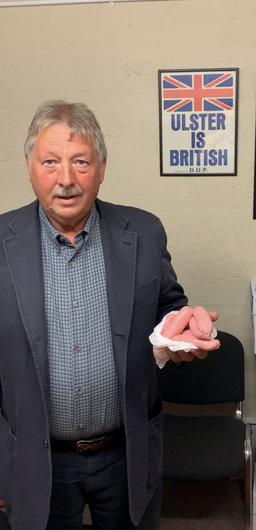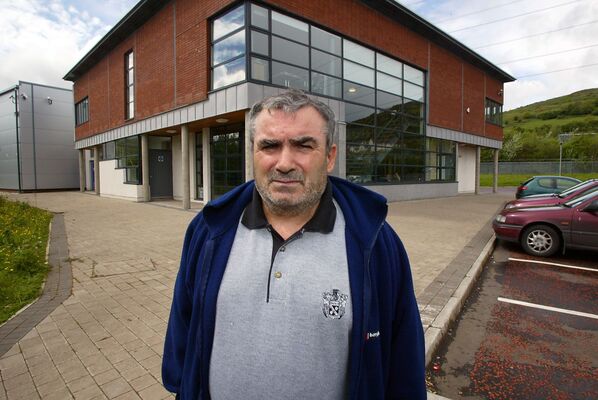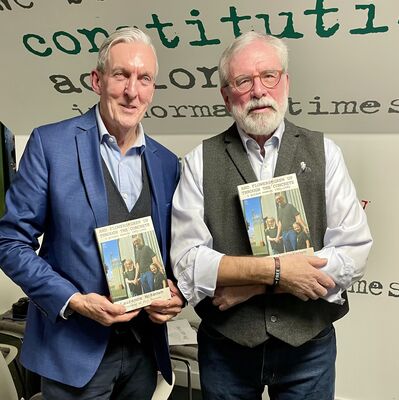LAST week was not a good week for Boris Johnson. Even before the weekend’s G7 summit began in Cornwall, the news agenda was already dominated by reports that the US government had issued a démarche to the British in advance of President Biden’s arrival.
I must admit I had never heard of a démarche. During my years of negotiations with the Irish, British, US and other governments it was not a piece of diplomaticspeak I had ever come across.
Apparently it is a formal diplomatic note or memo which expresses the grave concern of one side about the behaviour of the other. It’s not something that one ally normally issues to another. It’s certainly not something that usually finds its way into the media. There is no precedent for the stern message of concern delivered by the US government to the British government about Britain’s Brexit policy and its threat to the Irish Protocol and to the Good Friday Agreement. And it did find its way into the media.
Some media reports after the summit reported that US President Joe Biden had a “candid” conversation with Johnson. Jake Sullivan, who is President Biden’s National Security Adviser, said: “All I’m going to say is they did discuss this issue... The president naturally, and with deep sincerity, encouraged the Prime Minister to protect the Good Friday Agreement and the progress made under it. The specific beyond that I’m not going to get into.”
The G7 is made up of the USA, Canada, France, Germany, Italy, Japan, and the United Kingdom. The EU is invited to participate as a guest as are a number of other guest states. This year’s meeting, which was hosted by Boris Johnson, had a wide-ranging agenda which covered everything from the pandemic, including the distribution of vaccines, to the climate change crisis and the upcoming UN summit on climate to be held later this year in Glasgow.
The summit was intended by Boris Johnson to be a showcase for Britain as it seeks to reassert its leadership as a global economic power. Instead it turned into a PR debacle with a succession of G7 leaders privately, and some publicly, suggesting that the British government’s policy approach to Brexit and the Irish Protocol is dishonest and untrustworthy.
To the annoyance of the British the media spotlight, especially the international media, turned time and time again to the British attitude to Ireland and the Protocol. One after another, state and EU leaders questioned British sincerity and good faith.
In a tweet, Ursula von der Leyen, the President of the EU Commission, wrote: “The Good Friday Agreement and peace on the island of Ireland are paramount. We negotiated a Protocol that preserves this, signed and ratified by Britain and the EU. We want the best possible relations with the UK. Both sides must implement what was agreed on. There is complete EU unity on this.” Michel Barnier, who negotiated the Withdrawal Agreement and the Protocol for the EU, put it more succinctly: “I expect him (Johnson) to respect his own signature.”
British Ministers tried to shift the focus and to put the blame back onto the EU, accusing it of being belligerent and inflexible.
However, Johnson was repeatedly reminded in media reports that he had lied when he claimed that the Protocol would require no checks in the Irish Sea. He was reminded also that his government tried to pass a law in the British Parliament last year that would have opened the way for his government to unilaterally tear up an international agreement.
Elements of the British media were especially critical. An editorial in the Observer said: “The prime minister’s dishonest diplomacy and willingness to jeopardise Northern Ireland’s stability for Brexit will greatly diminish Britain’s role in the world.”
The threat by the British to unilaterally extend the June 30 ‘grace periods’ that delay the introduction of some border checks has also angered the EU. The so-called ‘sausage war’ and the bizarre image of a stern-faced Sammy Wilson defiantly standing in front of an ‘Ulster is British’ poster holding a handful of British sausages was a surreal moment in the midst of the current crisis.
This reflects the failure of the British government to negotiate and agree a mechanism to allow for the shipment of chilled meats between Britain and the North. Some unionist politicians have been moved to make the bogus and outrageous claim that the EU is intent on starving the people of the North.
The fact is that Brexit, the Withdrawal Agreement and the Protocol were all negotiated by Boris Johnson and his government, supported by the DUP. They were warned repeatedly of the significant economic and political risks they were taking but chose to ignore these.
In a scathing criticism of the Johnson government a former British Ambassador to the USA and the EU, Nigel Sheinwald, warned: “There is no point in writing new Atlantic charters which depend on mutual trust, mutual confidence and the rule of law when you are operating as chancers.”
Instead of trying to calm the situation the British chose to up the ante. Dominic Raab, the British Foreign Secretary, accused the EU of being “bloody minded” and “purist”. Johnson threatened to suspend the Protocol and invoke Article 16, which allows for either side to take unilateral action in the event of “serious economic, societal or environmental difficulties”.
The British tried to drag the verbal row into an argument over sovereignty by wrongly claiming that French President Macron had suggested that the North is a different country. A claim he did not make.
Finally, the decision by Edwin Poots to send President Macron a copy of the Good Friday Agreement deserves a special mention. This is the same Poots who said: “The DUP campaigned against the GFA, it consistently opposed and never signed it or signed up for it.”
Over four decades later, the H-Blocks revisited
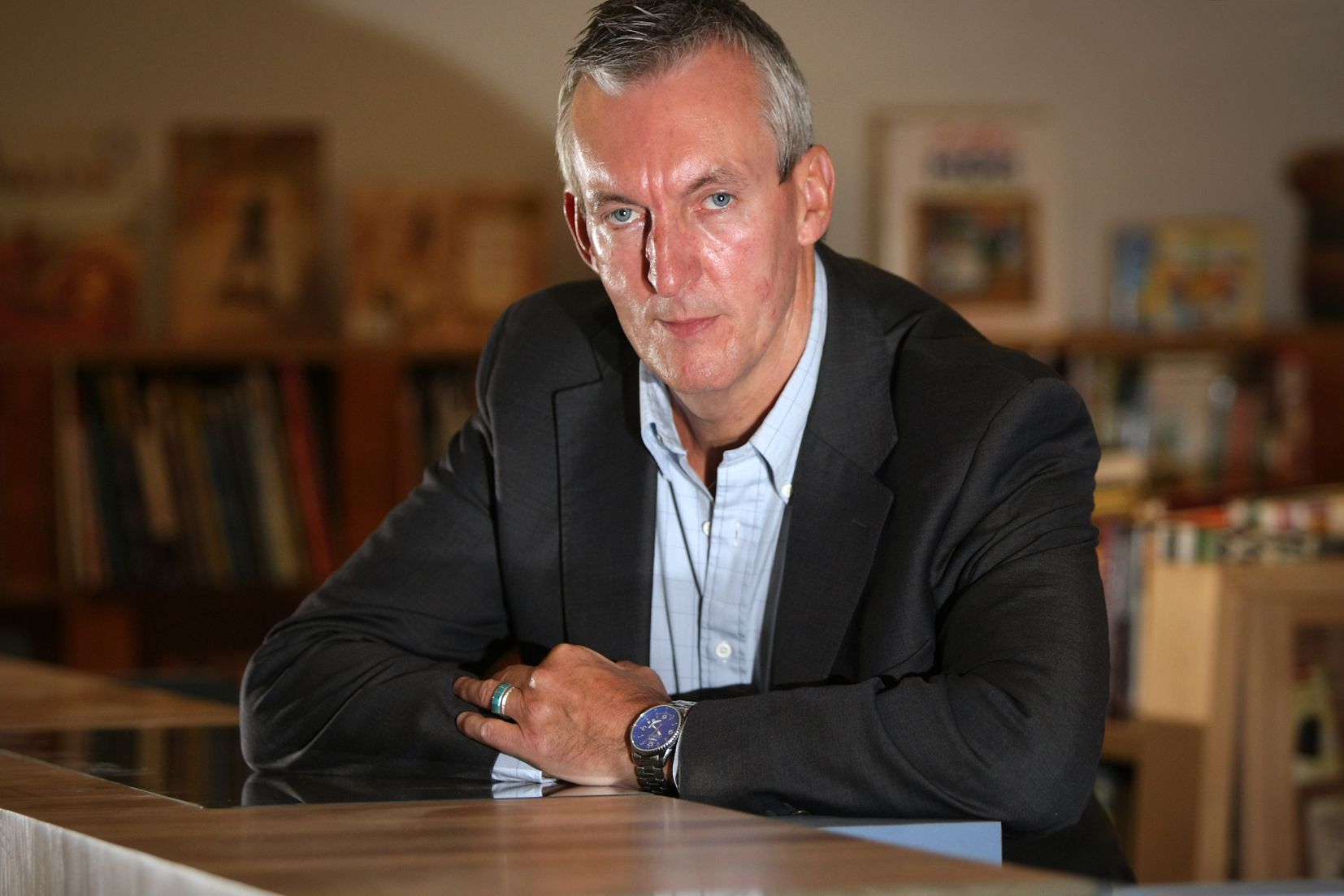
“THEY were real, they were young, they were full of life. They were like anyone else. They were like you. The prison robbed them of their lives; we should never compound that by only recalling their deaths. The accounts from their friends and comrades that you are about to read breathe life into them and make them real. You will enter their world and form an impression of them. You will get to know them a little.”
Those words, referring to the young men who died on hunger strike in 1981, were written by former IRA prisoner and hunger striker, Laurence McKeown (above, in his introduction to the recently reprinted 40th anniversary edition of the book he co-edited with Brian Campbell and Felim O’Hagan, Nor Meekly Serve My Time: The H-Block Struggle 1976-1981.
The book, containing accounts from 28 former blanketmen, was compiled clandestinely in the H-Blocks over 30 years ago to mark the approaching 10th anniversary of the hunger strike. It was written by prisoners whose memories of those protest years remained very fresh. Some were still in prison from the time of the protest; others had been released only to be re-imprisoned again at a later date. All of them could vividly recall their experiences of those years of protest, and for some, the last moments they spent with one or other of those who died on hunger strike. Sometimes it was a few words shared, a hug, or just a smile or a brief glance. No words necessary or no words adequate.
I recall reading the book when it was first published in 1994. On one page I found myself laughing out loud at some prank or other that a blanketman had played on a comrade, only to turn the next page and be openly moved to tears with some poignant recollection revealed – perhaps the death of a parent or sibling and being refused parole, or someone writing about those last moments shared with a hunger striker. And throughout the book the accounts of beatings, forced washes, mirror searches, wing shifts, and the casual daily brutality that went on day in day out, week in week out, for almost five years.
But this is not a book filled with despair – quite the opposite. What you are left with is a sense of camaraderie that is sometimes difficult to comprehend, so intense is it, and, throughout, a sense of hope. The human spirit rising above adversity.
It’s a story about young men. Like the story of their women comrades in Armagh jail they were determined that they would not be criminalised and nor would they allow the struggle they were involved in to be criminalised.
I’m delighted to see the book re-printed and I encourage everyone to take some time out during this, the 40th anniversary year, to read it. Its strength lies in its openness; its value rests in its humanity.
‘Nor Meekly Serve My Time’ – The H-Block Struggle 1976-1981 is published by Beyond the Pale Books www.beyondthepalebooks.com
It is available also at www.sinnfeinbookshop.com/
www.facebook.com/AnFhuiseog/
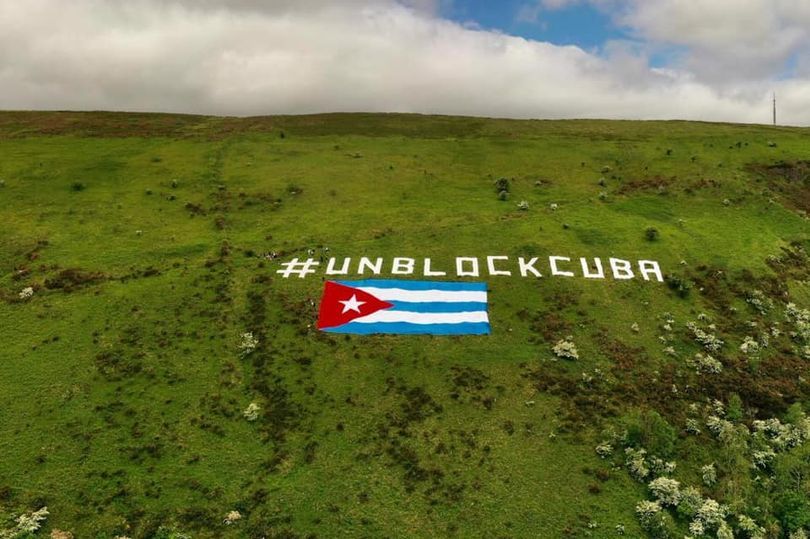
The flag, which is 150 by 75 feet in size, was accompanied by the hashtag #UnblockCuba. The initiative was undertaken as part of the campaign to win support at the United Nations for the lifting of the US-led blockade which has been in place since 1962.
Next week the UN General Assembly will vote on this important issue. In annual votes since 1992 the General Assembly has voted for an end to the blockade. In the last vote in November 2019 187 of the 192 member countries voted to end the blockade.
#UnblockCuba

